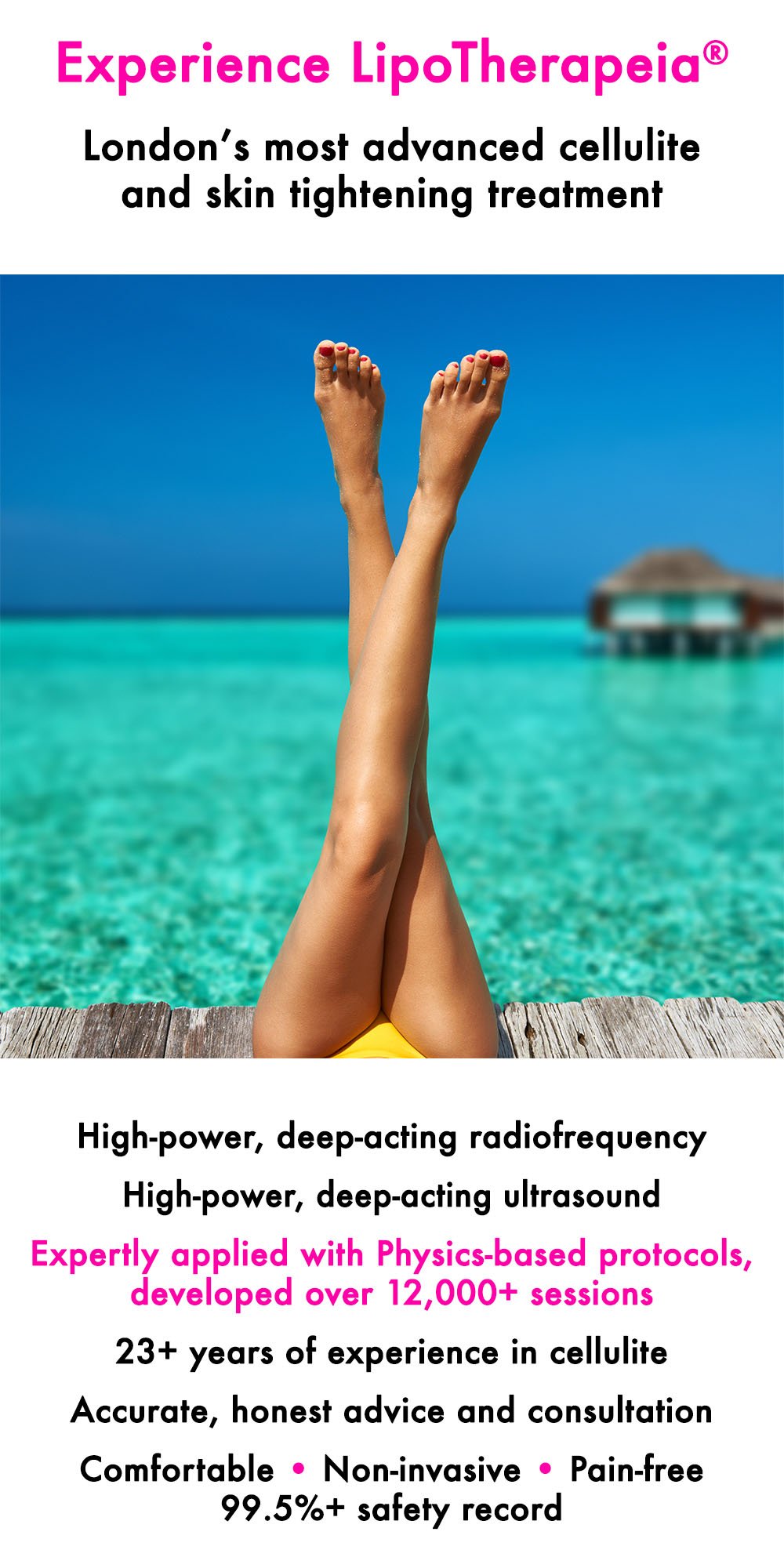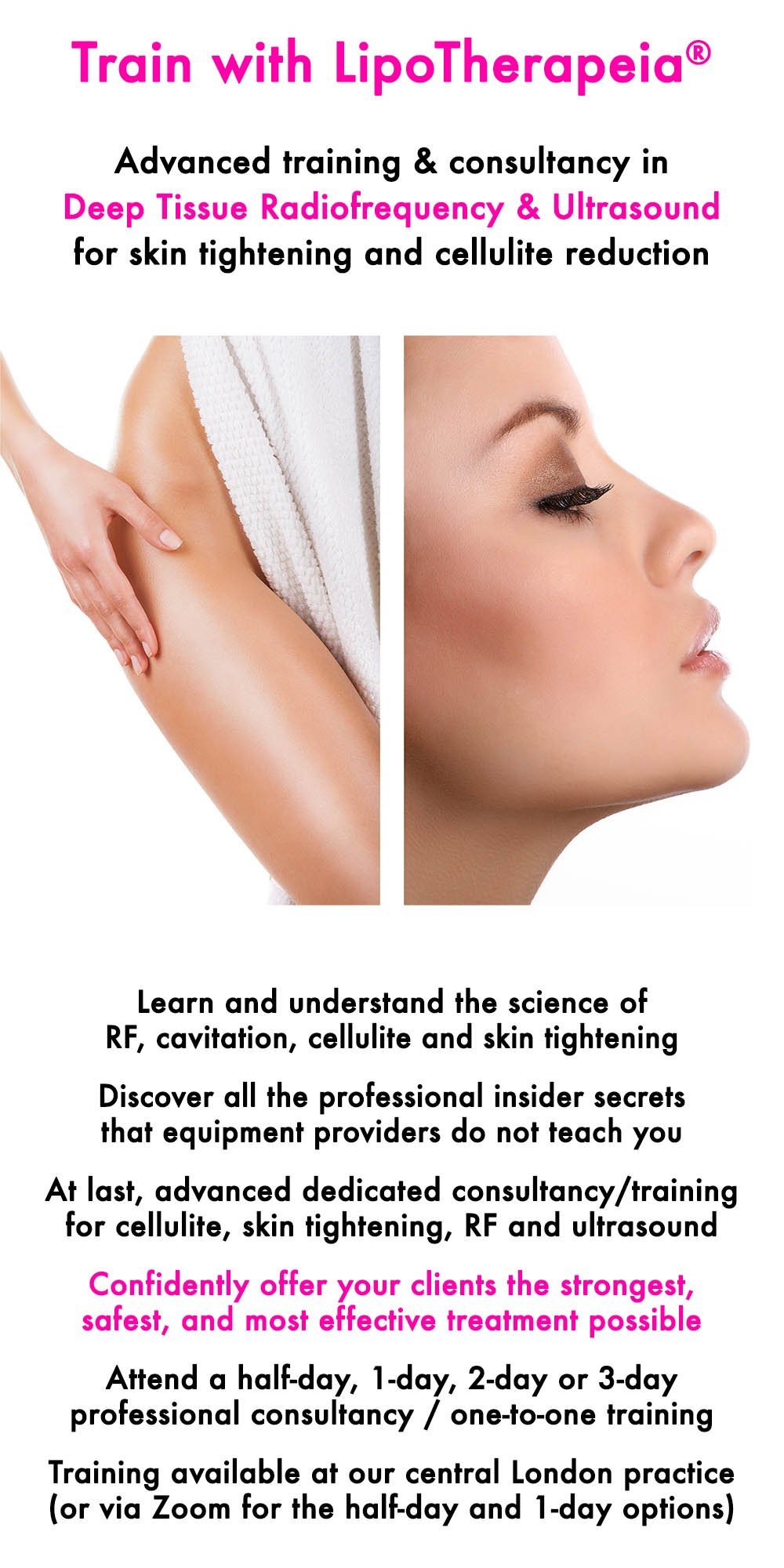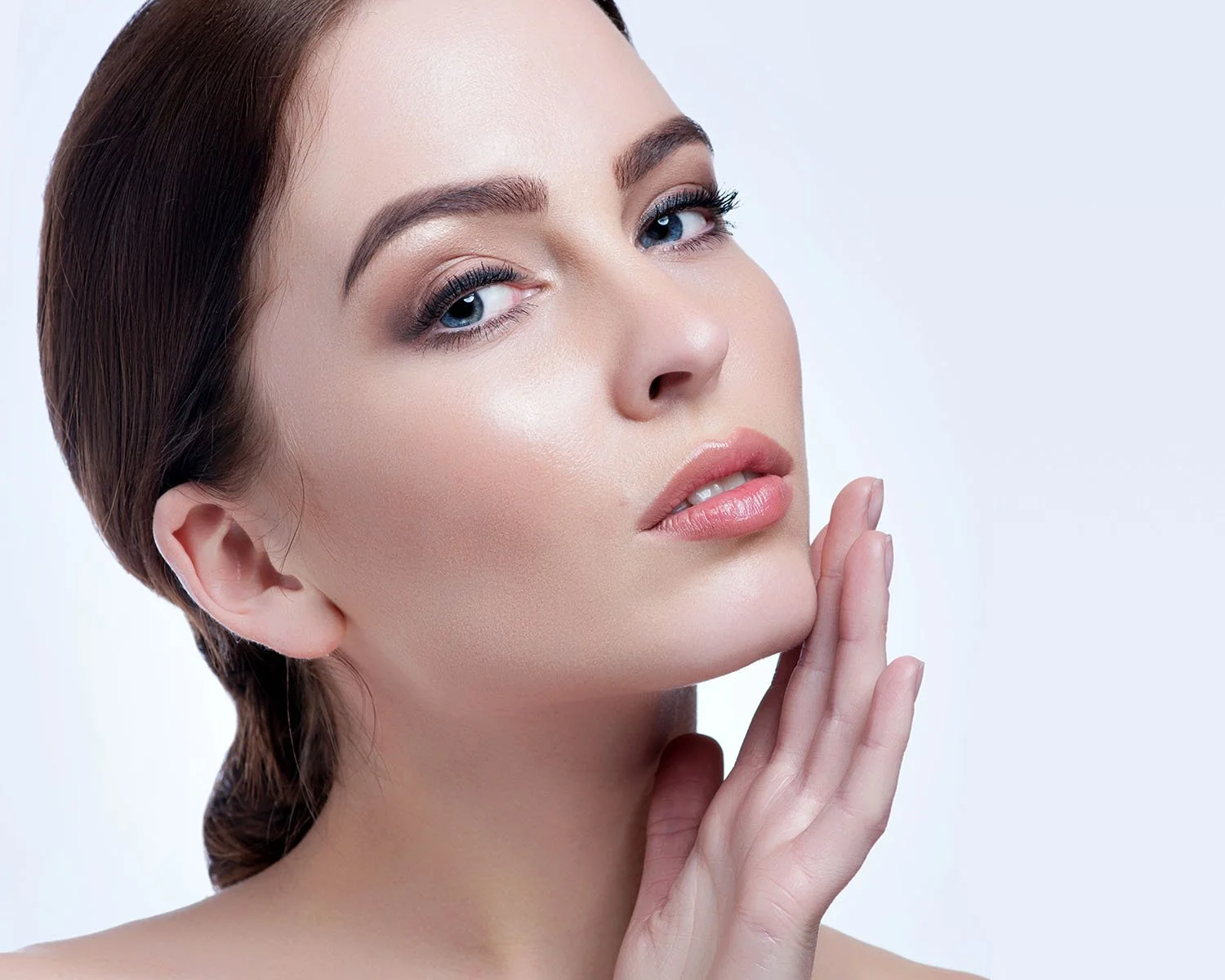Protein shake with cocoa and turmeric to help with cellulite prevention and reduction
High-flavanol cocoa, high-curcumin turmeric and collagen protein shake for less cellulite and healthier legs
Skin, blood vessels and collagen: the logic behind the cacao, turmeric & protein shake
Exercise does help boost collagen but is not enough - actual protein intake is needed
Lack of protein means loose skin
Protein, collagen in particular, is crucial for firm and smooth legs
Protecting your collagen and elastin from damage with polyphenols
Curcumin for cellulite and skin firmness
Cocoa flavanols for cellulite, skin firmness and elasticity
Highly concentrated polyphenols now widely available on the high street
Why not matcha tea, coffee or bilberry powder?
Cacao, collagen protein and turmeric shake for firmer, smoother legs
Check our professional consultancy for a masterclass in radiofrequency, ultrasound cavitation, cellulite and skin tightening
High-flavanol cocoa, high-curcumin turmeric and collagen protein shake for less cellulite and healthier legs
There are hundreds of ideas for drinks, juices and shakes that may be good for diet, weight loss and overall health, so one might wonder why these three ingredients?
The idea behind this shake is its simplicity, taste and impact it can have in the health of your legs.
Skin, blood vessels and collagen: the logic behind the cacao, turmeric & protein shake
Skin is made of protein, mainly collagen and elastin. Blood vessels are also made of protein, also mainly collagen and elastin.
Collagen, which makes your skin and blood vessels firm, and elastin, which makes your skin and blood vessels elastic, are both proteins.
The quality and quantity of those proteins largely determine the quality of your skin and blood circulation, two crucial factors in skin firmness, cellulite and overall leg health and appearance.
In skin looseness and cellulite there is a lack of collagen and elastin, arising from reduced synthesis and increased breakdown; plus in these cases collagen and elastin are quite often damaged (due to free radicals, glycation and inflammation), which makes the situation worse.
So lack of protein in the diet, sedentary living, oxidative damage, inflammation and glycation all affect the quality and quantity of collagen and elastin, leading to skin looseness, poor circulation and cellulite.
Exercise does help boost collagen but is not enough - actual protein intake is needed
Of course, a lot can be said about introducing more movement into our life, either via daily activities such as walking, or proper exercise and sports, as a stimulation of skin protein synthesis (collagen and elastin).
However, that’s beyond the scope of this article, which focuses on what you can easily do diet-wise to help build and protect your skin and blood vessel proteins, the most important of which are elastin and the collagens (there are 30 types of collagen, all playing different roles in skin and blood vessels).
Lack of protein means loose skin
As we mentioned above, skin is mainly protein.
If you avoid eating protein, because you are led to believe that excessive protein is bad for you, you will not have enough protein to repair and firm up your skin.
Bodybuilders (perhaps 1% of the female population) may indeed consume way too much protein, but the average woman (the other 99%) consumes way, way too little.
The fact is that, in their effort to avoid red meat, most women go to the other extreme and consume way too little protein, of any kind. This is a nutritional attitude which, together with lack of exercise, leads to skin looseness, ageing and cellulite.
Not to mention that lack of eating a major source of protein, i.e. red meat (even lean red meat) is the reason why most women are anaemic, and therefore chronically tired, these days. But that’s another story…
Protein, collagen in particular, is crucial for firm and smooth legs
So the advice is simple: introduce more protein into your daily life in the form of whole foods such as meat, fish, eggs, poultry, pulses and nuts, and perhaps also use a good protein powder.
The best source of overall high quality protein powder you can have if you are a vegetarian is non-denatured whey protein powder. This is the best way to boost your protein intake if you do not tend to eat much (or any) meat, poultry, eggs or fish (few vegans consume enough pulses and nuts to get enough protein every day).
If you wish to boost your protein intake specifically in relevance to your skin, the best protein to have is one that contains collagens type I and III. These are the most important skin-relevant collagens. You can mix whey protein and collagen protein powders 50:50 or have either of those.
Fortunately, these days you do not need to suffer from protein deficiency even if you are a vegan, as there are plenty of high quality plant-based protein powders on the market to choose from, made from rice, peas, chickpeas, quinoa, amaranth etc.
You can have a vegan protein powder and/or a “vegan collagen” powder (the latter is basically a normal vegan protein with added glycine, hydroxyproline and proline, i.e. the collagen-specific aminoacids).
Don’t bother with capsules and collagen drinks, are they re just too expensive and offer you too little collagen per dose.
And you don’t need to stay anaemic either. There are so many non-constipating iron supplements these days. Do yourself a favour and buy one and combine them with folic acid, B12 for best results.
Protecting your collagen and elastin from damage with polyphenols
Building new collagen and elastin is great, but it is not enough. You also want to preserve their breakdown and their overall quality, and this is where polyphenols and other phytochemicals come into play.
Partial damage of elastin, collagens and other skin proteins can occur due to glycation, oxidative damage or inflammation.
Polyphenols have been widely researched for their role in preserving proteins from damage.
There are several polyphenols available in the form of supplements but few are widely available in powder form and even fewer happen to have a nice taste (most are bitter and astringent).
However, this is not the case with curcumin and cocoa flavanols.
Curcumin for cellulite and skin firmness
Curcumin is one of the most widely available polyphenols today and it is found in turmeric powder.
Curcumin is a natural antioxidant, anti-inflammatory, anti-glycation, lipolytic, antifibrotic and circulation-enhancing natural agent and it is already widely found in drinks, such as coffee lattes etc.
Curcumin helps prevent cellulite in multiple ways, plus it helps protect your collagen and elastin proteins.
Cocoa flavanols for cellulite, skin firmness and elasticity
Another class of widely available polyphenols is that of cocoa flavanols. Cocoa flavanols are found in cocoa powder and dark chocolate.
Cocoa flavanols are proven to help protect collagen from damage and are widely researched for their antioxidant and circulation enhancing properties.
Cocoa flavanols are also very specific to elastin: they help stimulate its synthesis and prevent its breakdown.
So, just like curcumin, cocoa flavanols help prevent cellulite in multiple ways, plus they help protect your collagen and elastin proteins.
Highly concentrated polyphenols now widely available on the high street
In the last few years, high flavanol cocoa powder, with 2x times more flavanols than normal cocoa powder, has become widely available in the UK, either at health food stores on the high street or on the internet.
High curcumin turmeric powder, also with 2x the normal amount of curcumin, is also available these days, enabling people to get wholesome nutrients in meaningful quantities.
And, of course, there are quite a few good whey protein, collagen I + III protein or vegan collagen I + III protein brands to choose from.
Why not matcha tea, coffee or bilberry powder?
Other high polyphenol nutritional powders are also good for skin proteins and help fight cellulite, such as matcha green tea powder, bilberry powder or instant coffee powder.
However, the problem with both matcha tea and coffee is their very high caffeine content. In fact, matcha tea powder typically contains more caffeine than coffee.
Excessive caffeine consumption, with all the jitters, blood sugar fluctuations and adrenal exhaustion that may cause, is not ideal for overall body health, so I do not deem them a good match for a healthful protein shake.
Decaf coffee can perhaps be used in a protein shake, but the overall taste may be too strong for some. If taste is OK for you though, you can use instant decaf coffee powder together with cocoa flavanol powder and/or turmeric powder.
Bilberry powder, on the other hand, is simply not compatible with anything else, taste-wise. If a protein shake tastes bad, no one will drink it and the whole purpose is defeated. The idea is to create a nice tasting drink that people will want to consume often in order to benefit from its contents, rather than a foul tasting punishment that people will resent and avoid.
Perhaps bilberry powder will be somewhat compatible to cocoa flavanols, but then again you cannot use turmeric, as the taste will be totally off.
Cacao, collagen protein and turmeric shake for firmer, smoother legs
So there you have it: high-curcumin turmeric powder, high-flavanol cocoa powder and whey/collagen/vegan protein powder, added to some plant milk, normal milk or water and you have the ultimate leg drink.
You get plenty of taste and plenty of anti-cellulite / skin nourishing goodness and none of the fat and evil sugar.
Just make sure you do not use a plant milk with too much sugar. If the plant milk is too sweet then there are obviously too many sugars there - usually concentrated rice syrup (basically sugars) or concentrated apple juice (basically sugars), which on the label show as “rice” or apple juice (very misleading).
A typical dosage is one or two tablespoons of protein powder (15-30g), one or two teaspoons of cocoa powder (5-10g), with turmeric powder added according to taste, tolerance and personal preference (about one-half or one teaspoon is fine for most).
If in doubt about anything, just use less or skip that ingredient. And if you are on ANY medication or have ANY health problem, always consult your doctor first.
And as mentioned above, you can optionally add decaf coffee to the mix, if you so prefer, to get an even richer taste and benefit from coffee’s beneficial polyphenols, especially chlorogenic acid.
Or bilberry powder, to get some amazing anthocyanins.
Enjoy your leg-health boosting drink!
You can also check our article: The ultimate anti-cellulite drinks (II): vegetable juices and berry smoothies.
Check our professional consultancy for a masterclass in radiofrequency, ultrasound cavitation, cellulite and skin tightening
Do you want to deeply understand radiofrequency, ultrasound cavitation, cellulite and skin tightening? Attend a half-day, 1-day or 2-day or 3-day professional consultancy / one-to-one training and confidently offer your clients the safest, strongest and most effective treatment possible. Service available via Zoom or at our central London practice.





